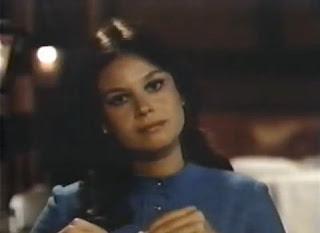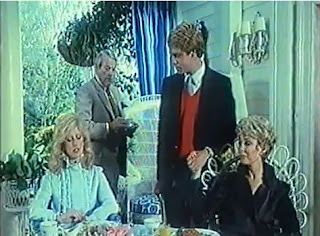Today marks the 30th anniversary of the CBS network airing of the last episode of "M*A*S*H," the classic Korean War situation comedy centering on the rag-tag group of Army personnel serving at a Mobile Army Surgical Hospital. The episode, entitled "Goodbye, Farewell and Amen" holds a special place in the lives of me and my family, because my late father (who passed away from lung cancer last November) acted in it as a Chinese soldier, captured by Major Charles Winchester, who turns out to actually be a member of a Chinese Opera troupe. In the storyline, Winchester is irritated because he is stuck in Korea and loses out on a job he wanted at a Boston hospital. He tries to distract himself by teaching the Chinese Opera troupe how to perform Mozart and he starts to bond with them before they are shipped out, as part of a POW trade, and killed by a shell attack. My father was a renowned Chinese Opera Musician known for playing the Huqin, or Chinese fiddle. He was hired for "M*A*S*H" both to perform the music in this subplot, and also to act on-screen as one of the Chinese soldiers in this storyline. My understanding is that he got the job through the recommendation of his Chinese opera colleague and friend, actress Lisa Lu. My father was paid only for acting in this episode, he didn't get additional payment for going to a studio later and recording the music. He complained later that he should have made sure to get paid for both acting and performing music for this episode!
I think the biggest surprise for my father is when he ran into actress Rosalind Chao on the set. Chao was playing Soon-Lee, a Korean refugee who Klinger (Jamie Farr) falls in love with. Soon-Lee returned the following season as a regular on the short-lived spinoff "AfterMASH." Chao is the daughter of one of my father's closest friends and Chinese opera colleagues. He had known her since she was a kid, and so he was shocked to run into her working on this episode. He remembered that production on this episode was a long and arduous process. It was evident that everybody was working hard to ensure that this would be a fitting send-off to the whole series. At one point, a fire destroyed the exterior set out in Malibu, which necessitated moving locations and writing the fire into the storyline of the episode. That meant my father's time working on "M*A*S*H" would be longer than expected, as the production was delayed to allow for the sets to be reconstructed elsewhere. That was fine with my father, not only because it meant that he'd work longer on the show, and get paid more money per day, but also because it meant that he could continue to enjoy the food being served at the craft services table. I think that was my father's favorite thing about working on "M*A*S*H"--the food. He told me of how they served steak and hot sandwiches and dessert on an unlimited basis on that show, and he enjoyed every moment of it.
My father took a lot of professional pride in being a Chinese opera musician, but he definitely was not trying to be a scene stealer. In real-life, he hated the Communists in China with a passion. He had to flee China in 1949 to Taiwan when the Communists took over, leaving everything he knew behind. So the one thing he did not like about this gig was having to play a Communist soldier and wearing the Communist Army uniform. He was really embarrassed by that, and would avoid any notions of the producers giving him a close-up. He tried as much as possible to not make himself visible on-camera. He just tried to blend into the ensemble, as he felt he was there to perform his music, play that role, get paid for it, and that was it. My understanding is that my father was the only person among the five actors playing the musicians in this subplot who actually was a musician, as the others were non-musical actors hired to play those roles. Because the others didn't have any issues playing Communist soldiers, and appreciated having as much face time on-screen as possible, it was easy for my father to remain inconspicuous.
Late in the episode, there is a plot twist where the Chinese opera soldiers are taken away as part of a POW exchange, against Major Winchester's wishes. The truck transporting them is shelled and one of them is sent back to M*A*S*H for treatment. The other four, including my father's character, are killed off-screen. The wounded Chinese soldier who makes it back eventually dies on-screen. My understanding is that they asked my father to be the one who is brought back for treatment. However, that would have required my father to perform the scene lying on a gurney outdoors, with his shirt off, on location in Malibu during winter, when the scene was shot. My father said that it was freezing on location, and he was afraid of catching a cold if he were to film the scene without wearing his shirt for an extended period of time, so he refused to do it. He said he'd only do it if they paid him extra, which they refused, so another actor from the quintet got to play the scene instead. At the time, I was disappointed my father didn't do the scene. I would have liked him to have his one big scene in the episode. But, now that he has passed away, I feel differently about it. I think I'm glad he didn't do it because seeing him die on-screen now, even if it's just in an episode of "M*A*S*H," would probably be very upsetting to me.
The night the "M*A*S*H" episode aired, I have to admit I was very shallow and didn't watch it with my family. I was young and figured that I see my father everyday, so it's no big deal to see him on TV. (How thoughtless I was at the time!) I was too busy watching the stupid Irwin Allen disaster movie "The Night the Bridge Fell Down" (which I blogged about the other day regarding the talented Barbara Rush who starred in it), airing on NBC opposite "M*A*S*H." I wish I had been less selfish and experienced watching the episode with my family that night. I have since watched it with them many times through the years and it is never less than a special experience for me and my family. Clearly I was one of the few people not watching the last episode of "M*A*S*H" 30 years ago tonight, as it went down in the record books as one of the highest rated TV programs of all time, with 121 million viewers. The fact my father was part of pop culture history is something my family takes pride in. My brother said recently "No show will ever get a 53 share again. It was before cable had a true foothold, and before the splintering of the TV audience with iPads and other ways to get entertainment, it was truly the end of an era." I also think the last episode of "M*A*S*H" was significant in that it was one of the first "big finale episodes" in the history of television. Before that, TV shows were of such an episodic nature that, except for the last episode of "The Fugitive" in 1967 (and, to a lesser extent, the last episode of "Charlie's Angels" in 1981 where Jaclyn Smith's Kelly is shot in the head and the other characters reminisce about past cases as they pray for her to pull through), if a show ended, it just ended like a regular episode. Most TV shows up to that time didn't attempt to wrap things up for the audience the way "M*A*S*H" did. I remember in the year after that episode aired, we suddenly had "big finale episodes" that wrapped up "Happy Days," "Three's Company," and "Little House on the Prairie" for viewers. Now, every long-running TV show has to have a final episode that provides a sense of closure for its audience, and I truly believe that "M*A*S*H: Goodbye, Farewell and Amen" paved the way for all the others that followed.
I think what stands out the most for me regarding my father's participation in "M*A*S*H" is that he had one project in his career as a Chinese opera musician that continues to have longevity. Even though he had just a featured role, it was in one of the most watch television programs of all time, and he got to perform his music on-screen. It means a lot to me that there is something he worked on that will never be forgotten. When he passed away, I remember thinking "My God...is this really the end? After everything he's survived and been through in his life, it all ends here?" But it doesn't end there because I'll always have my memories of my father and I'll also have the last episode of "M*A*S*H" in addition to my memories to ensure that his presence and existence in this world will always be remembered. I think it's fitting that my father's one role in a big television project was something that celebrated perseverance and humor under difficult circumstances (even though he witnessed the Japanese occupation of China during World War II and had to flee China to escape the Communists and leave his parents behind, he never stopped enjoying life), and which involved saying a warm goodbye to loved ones. I saw a clip of the episode again recently on YouTube not long after my father passed away in November. It kind of shook me up to see him not just alive again, but looking so much younger. I think that's the reason why I ultimately love movies and TV more than I do theater. I know everybody says that there's nothing like the spontaneity of a live performance, but there's something to be said for re-experiencing something you've enjoyed again and again, especially if it allows you a chance to remember how your father moved, talked, behaved, and (most importantly) to see him perform Chinese opera again. In our family, "M*A*S*H" is the gift that keeps on giving.



























































